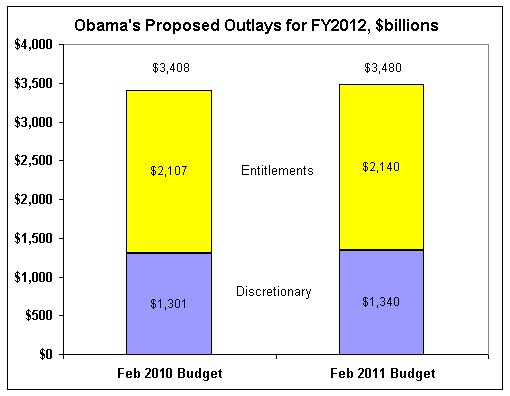Article Archives by Subject: Education
 Melissa Harris-Perry
Melissa Harris-Perry
|
Subject: Whose Life Is It Anyway?
The provocative movie, Whose Life I It Anyway?, was released in 1981. It stars Richard Dreyfuss as Ken Harrison, a sculptor who is paralyzed from the neck down after a horrible automobile accident. When it becomes clear that he will never recover any additional use of his body and that his life is reduced to nothing more than the care that is offered by others, Harrison decides to end his life. However his wishes are blocked by those opposed to euthanasia and suicide. The story depicts the struggle between two views of life and confronts the question of whether Harrison—or any of us—are truly the ultimate masters of our fate, holding an absolute right to direct and dispose of our own life as we see fit? Many other films such as The Truman Show, The Matrix or Dead Poets Society explore the question of the level of control that we actually exercise over our own lives, but none is so explicit as Whose Life Is It Anyway? In each of these stories, the underlying conflict is that of individualism versus collectivism: Do we, as individuals, possess the exclusive sovereign right to determine the course of our life, or are we in some way subservient to a collective group which holds sway over us and may dictate requirements and actions that must be obeyed, even if they violate our desires and will? To state the issue plainly, the simple question is, "are we free or are we slaves?" This country was founded on the enlightenment principle of individualism. The Declaration of Independence states in no uncertain terms that each person possesses rights, and that "among these are Life, Liberty and the pursuit of Happiness." And not only do we possess these (and other) rights, but they are "unalienable", meaning that they are an inherent, absolute and unassailable part of our nature as individual human beings. Nothing could be made clearer, and yet, as time has passed, fewer and fewer people in this country understand and adhere to these fundamental truths. Bit by bit, the age old principles of collectivism have reasserted themselves and are now poised to destroy the essence of what has made America unique in the history of the world. It was not so long ago that statists had to make an effort to disguise their underlying principles and endevour to sneak them in beneath the conscious awareness of a public that still retained an American sense of life — by which I mean a respect for the virtues of self-motivation and self-responsibility, a belief that hard work was the source of reward and advancement, and an expectation that everyone was entitled to keep and dispose of that which they earned. However, six terms of Clinton, Bush and Obama, coupled with another two generations having been indoctrinated in government schools, has transformed the values of our society such that the cockroaches may now skitter about in the bright daylight without fear, openly spouting their collectivist goals. For example, here is Melissa Harris-Perry in a promotional spot for MSNBC, waxing on about a few collectivist notions which are to her, apparently, self-evident.
Wait! What was that? Could you please run that by me again.....
Ten years ago, would anyone on a major network have dared speak these words and then expected to retain their job? What a difference a decade makes. When conservatives argue that the institution of family is under attack, you have to look no further than Melissa Harris-Perry to see that it's true. And there's no longer any need for subterfuge. It's collectivism brothers and sisters, and we're proud of it! The state reigns supreme and individuals—whether adult or child—belong to us, to do with as we please. Well, there was justifiable blowback from all quarters once word concerning this piece made the rounds, and Harris-Perry was forced to respond.
While there were a few patently disingenuous attempts to misrepresent some of the source of outrage being directed at her video, on balance I thought that Harris-Perry did a pretty reasonable job of identifying the actual core issue in this debate, while laying out her personal world view. Here is an excerpt:
Well, it is good to see someone on the left at least identify and acknowledge the existence of the individualist viewpoint, even while going on to dismiss it without presenting any substantive arguments, just as she offers no reasons in favor of the "collective responsibilities" position, apparently expecting us to simply observe that it is self-evidently correct. This is a window into the state of today's culture—where viewers of programs such as this wait to be instructed in how and what to think, without the need to burden themselves with facts, rational analysis or the mental integration of thought into fundamental principles. Such a process would demand answers to a variety of questions, starting with:
The previous vidio clip is an abbreviated version of a longer segment that can be viewed here. Starting at the seven minute mark there is a panel discussion which includes Matt Welch, the Editor in Chief of the libertarian Reason Magazine. Now, of course, Welch has been selected to present the "opposition" point of view, for exactly the same reason that NPR relies upon David Brooks to represent the "conservative" viewpoint—because both can be counted on to concede the progressive premise on most issues. Nevertheless, it is instructive to watch the first few minutes of this discussion in order to see precisely how not to defend liberty. Here is an excerpt of Welch's comments:
While Harris-Perry has just laid out the philosophical question of individualism versus collectivism and continues to try and steer the conversation back towards this topic, Welch falls over himself conceding the existence of a "social contract" that binds us all to one another with a communal duty, while granting that the state breached the sanctity of the family unit long ago and there is nothing left to discuss on that subject. Welch is not interested in defending the individual rights of the child against compulsory indoctrination, or the individual rights of the parent to determine the best course for their child's development, or the individual rights of the taxpaying adult that is forced to fund the education of other people's children. Instead, his concern lies with more pragmatic matters: the economic efficacy of education spending. In the cause of freedom versus slavery, Welch effectively argues for the latter and Harris-Perry wins, by default, in a TKO. So we return to the original question: Whose life is it anyway? If you're waiting for someone like Matt Welch to defend your right to exist on your own terms, then I'm afraid you have already lost the battle. It's up to you to get vocal in identifying and demanding your rights. Speak up at every available opportunity. Do not allow the collectivists like Melissa Harris-Perry to go unchallenged. Whose life is it? "It's MY life. Keep you mitts to yourself and get out of my way!" |
|
Permalink 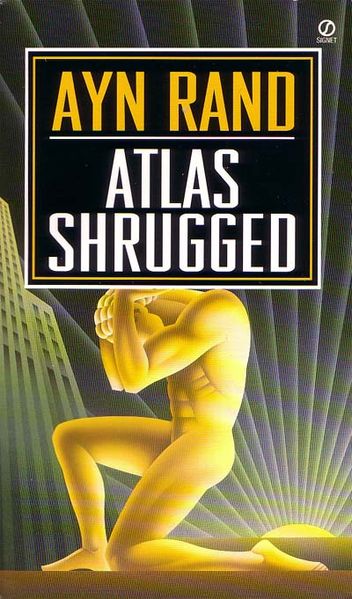
Free Books |
Subject: Free Objectivist Books for Students
Jason Crawford is an Objectivist who blogs at The Rational Egoist. He has
created a website which acts as an exchange between students who would
like to read one of the books in the Objectivist canon and individuals
who are willing to provide the book or books to be read. His site
is simply called:
Here is a bit of what Jason has to say about this project:
|
|
Permalink 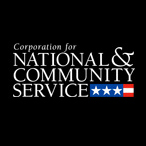
Social Innovation Fund |
Subject: Building Obama's Army
Do you know what a "Social Innovation Fund" is? Do you need one?
Did you know you were already paying for it with your tax dollars?
Apparently, it's "an entirely new way of doing business."
You don't say! Tell me more.
According to this
press release
the fund's new director, Paul Carttar:
|
|
Permalink 
Student "Loans |
Subject: This Is How We Get Things Done—Chicago Style.
In what seems like a lifetime ago, back in September 2009
(see here), I was talking about the Obama
administration's plans to nationalize the entire student loan industry,
with the intent of then being able to tie the government's single
source of educational loans to a requirement for mandatory national or
"community" service.
Well folks, you are not going to see that legislation be debated in
in the chambers of Congress, nor will you see it come up for a vote
by your elected representatives. This isn't going to happen because
this heavily contested piece of legislation known as the Student
Aid and Fiscal Responsibility Act, is, as reported in
Newsweek
and by The Hill,
simply going to be attached to the health care modification package
being considered by the Senate, and enacted by a simple majority of
senators using the budget reconciliation process.
And that's how we do it in Washington D.C. these days. If you can't
get you legislation passed through normal constitutional channels,
there is always a procedural trick or a bribe or a threat that can
be used in its place.
I guess I'm still dumbstruck from the realization that our culture has
sunk to such a low, that it is now possible for so many Americans to
look at these underhanded politiebureau tactics and simply sit back
and smile at the results.
"The State is that great fiction by which everyone tries to live
at the expense of everyone else." -- Frederic Bastiat |
|
Permalink 
Corporation for National & Community Service |
Subject: And this is how it's done ...
Here is an excerpt from today's
announcement from the Corporation for National & Community
Service, the agency that, on December 16, 2009, received $1.149 billion
when Obama signed the Fiscal Year 2010 Consolidated Appropriations Act:
|
|
Permalink 
Haaretz.com |
Subject: Service As A Social Norm
Israel has always maintained a national defense force by way of
mandatory conscription, but even that country is upping the ante
with a proposal to extend mandatory service to all citizens in the
country. Reuven Gal reports in an article titled,
"
Service as a social norm", as follows:
|
|
Permalink 
Sonia Sodha |
Subject: Think Tank: National Service for 7-Year-Olds
An article by Sonia Sodha in the UK Times titled,
Think tank: National service for 7-year-olds,
highlights the scope and intent behind the drive to impose a mandatory
national service requirement on the citizens of many countries across
the globe. Although this story is about Britain, there is nothing
here that doesn't apply equally to what is currently transpiring in
the United States. Here are a few excerpts:
|
|
Permalink 
Air Cargo Blog |
Subject: Service-Learning
I thought the following was funny. On
AirCargoBlog.com,
a desperate high school student is looking around for some "community
service" work, apparently in order to fulfill his mandatory requirement
for graduation so that he might be allowed to attend college. A
couple of the responses were, ahem, interesting. Here is the
initial query:
|
|
Permalink 
Slippery Rock University"> |
Subject: New Government Program Pays Students For Community Service
As reported by Mike Madden in the Slippery Rock University's newspaper,
The Online Rocket, The government is extending its national
service claws into universities by paying college students to perform
community service work.
|
|
Permalink 
Academy of St. Joseph |
Subject: School Requires Parents to Perform Community Service
According to an article by Elizabeth Humphrey titled, School Requires Parents to Perform Community
Service, the Academy of St. Joseph in NYC is now requiring
family members of its students to perform community service work.
|
|
Permalink 
Star Tribune |
Subject: Indoctrinating the Indoctrinators
As the government continues its speedy imposition of forced community
service work on the country's students through the
Service-Learning initiative, one might
wonder just what sort of training do the teachers in these classrooms
have for administering these programs, and what type of mentoring
can we expect them to provide to their charges. Well, wonder no
longer. In the Minneapolis-St. Paul Star Tribune, Katherine Kersten
does an excellent job of reporting on one answer in her article,
At U, future teachers may be reeducated. Did she
actually mean to report that teachers were to be educated? No, she
really means reeducated! From the article:
[Thanks to Mark Kalinowski for bringing this article to my attention.] |
|
Permalink 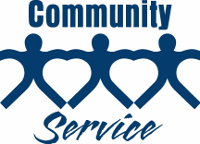
Community Service |
Subject: More Mandatory Community Service for Students
In an earlier article, I reported that the
Lockport Township, IL School District was considering imposing mandatory
community service on all high school students as a requirement for
their graduation. Well, as
this
follow up article indicates, they accomplished their mission.
|
|
Permalink 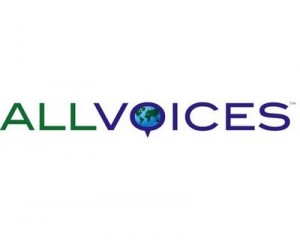
All Voices |
Subject: One Good Dose of Compulsion Deserves Another
Once you cross over the line by imposing mandatory education on
children, you transform schools into prisons, with all of the
associated problem that entails. Here is a short article that
appeared on the website All
Voices which is interesting for some of the selected follow
up comments by parents and community members.
|
|
Permalink 
Lincoln School |
Subject: Middle school students learn about community service
The Lincoln Journal covers news from the central-eastern Massachusetts
region. The following are excerpts from an article published on
11-12-09 titled,
Middle school
students learn about community service:
|
|
Permalink 
The Student Formerly Known As Prince |
Subject: Any Community Service?
I couldn't let this one pass by. While our schools focus on making
sure that the youth of our country are being properly indoctrinated in
the values of "Service-Learning" to become acceptable citizens,
do you think that they might be neglecting any other types of useful
learning? Let's let one enterprising student answer the question for
us as she searches for a solution to her
community service requirement problem on Yahoo Answers:
Yes, her research skills may be a little rusty, but I don't know what I'm worried about. She's the product of our fine educational system and that should guarantee that she will do just fine. And even if she can't get a job in one of the technical fields, or in the world of high finance, I'm sure she'll find her place in a fine government job. Maybe even teaching English to one of your children or grand kids! |
|
Permalink 
Classroom Brainwashing |
Subject: Exposing Obama's Classroom Brainwashers
In a PJTV video titled:
Joe Hicks covers much the same territory that I do on this blog,
pointing out that our public schools are becoming more indoctrination
centers than houses of learning.
I disagree with Joe on one point. We can stop this
if a loud, vocal movement begins to speak out against the concept
of state-run education and we work to completely privatize all of
our schools. Quoting from the article by law professor Rodney A.
Smolla that I reference in my previous blog entry below:
|
|
Permalink 
Involuntary Servitude |
Subject: Involuntary Servitude: The 13th Amendment Ain't What It Used
To Be
Excerpts from a 1997 paper by Jessica Parr titled,
Mandatory Community Service:
|
|
Permalink 
Michelle Obama |
Subject: How Much is Michelle Obama Worth?
As reported by Andrew Clark in
Politics Daily,
|
|
Permalink 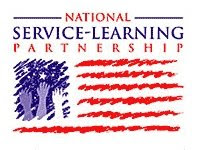
NSLP |
Subject: Be It Resolved ...
Ace Parsi, the Policy Director for the National Service-Learning
Partnership, issued an
Important Policy Update in which he states:
[...] It's a critical time for service-learning and it is so important to let Congress know that service-learning works and we care.
-- C. Jeffery Small |
|
Permalink 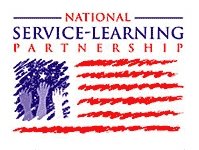
NSLP |
Subject: Service-Learning
While exploring the National Service-Learning Partnership (NSLP) site,
I took a look at the
page
describing the "service-learning" concept. Near the top of the
page is the following example:
|
|
Permalink |
Subject: Service is the Rent You Pay ...
From an article titled,
Service Day at the Meridian School, we learn how
children in Kindergarten through 5th Grade are indoctrinated into the
idea that service to the community is a duty. Here are some excerpts:
[...] "Service is the rent you pay for living on earth, and it starts in elementary school," according to Ron Waldman, the Head of Meridian School. "By the time they leave 5th grade, we want our kids to feel that this is part of the fabric of who they are. It's not whether I should or shouldn't serve the community, but how. That's just what we do." [Emphasis added] |
|
Permalink |
Subject: Working on Political Campaigns is "Community Service"
— Sort of ....
A naplesnews.com,
we learn that:
[...] "It is not so much the site, but what you do at the site," [Diedra Landrum] said. "A student might clean up after a rally, but not endorse a candidate. They could work at voter registration." [...] But [Chris] Smith told committee members to think carefully about how much work they let a student do for a political or religious organization. If the district officials allowed a student to work for the Democrat or Republican parties, for example, they could be opening themselves up to allowing students to receive credit for working for the Nazi party. "You could be going down a slippery slope," he said. [...] The committee voted 4-0 to allow students to perform non-partisan work for community service hours. |
|
Permalink |
Subject: Hey Kids, I've Got A Message For You ...
From the RFK Record,
No Community Immunity
by Heather Marie Mendez:
-- C. Jeffery Small" |
|
Permalink |
Subject: Half of Public Schools Require Community Service
According to the Kansas City Star, in an article titled
Volunteering is a requirement at Florida high schools:
|
|
Permalink |
Subject: Giving is the New Taking
At the website titled New Paradigm Shift, there is a very
pro-service article by Pilar Stella entitled
Giving is the New Taking, which begins with the
following quote by Price Pritchett:
|
|
Permalink |
Subject: Lockport Township, IL High School Moves Towards Mandatory
Community Service
As reported today in
The Homer Horizon:
|
|
Permalink |
Subject: Community Service Infects the Montessori Schools
In the article
Cultivating Agents of Change, educational consultant
Sara Cotner introduces Make A Difference Day, a national day
of community service, into the Montessori curriculum. As she states
in her article:
|
|
Permalink |
Subject: Can Second Graders Help the Community?
Why yes, according to teacher Hannah Motta's
students, they can! Read about it at:
2HM Class Blog.
Grace seems to have captured the real spirit of the exercise:
Second graders can give money to them for buying bricks or things they need. 2HM can give them some books to put in their library." |
|
Permalink 
Indoctrination |
Subject: It's Never Too Early To Indoctrinate
Today we look at how the idea of national service has infiltrated our
schools. Soon it will be impossible to get an education anywhere
without being forced to submit to a mandatory service requirement.
And since education is also mandatory, the requirement for national
service will have been imposed through this back door, instead of
by a direct legislative act which would have faced scrutiny and
vocal opposition by the public.
Let's start with a look at our friends at
ACORN. Were you aware that some of your
tax dollars were being given to this organization so that it could,
in partnership with the New York City Department of Education, create
two (and possibly three) high schools with a "community service"
orientation?
The first of these is the
ACORN Community High
School which has the goal of "Developing Tomorrow's
Leaders". This is done, in part, with Social Studies programs
that "teach them the critical thinking skills necessary to
challenge inequity and injustice." Nothing very specific there,
but it does get you thinking about just how "inequity and
injustice" might be defined by ACORN? While I was unable to
locate any detailed descriptions of the various academic courses
being offered, there was a very complete overview of the
service program and its requirements.
'Give Your Best, Be the Best' The ACORN Community Service Program (ACSP) offers ACORN students experiences that cultivate leadership skills while they contribute services to their communities. Through placement in various agencies and service providers, ACSP encourages students to apply what they learned in and out of the classroom to solve real-life problems. In the process students learn efficient work habits, teamwork and self-confidence. They also learn about democracy, budgets and the benefits of active citizenship. Further, students in ACSP acquire technical and communication skills that are essential in critical thinking for designing and implementing solutions that build proud and prosperous communities. Participation in ACSP instills an ethic of lifelong community service where students are inspired to build proud and prosperous communities."
[...] Connected to this event, the students will be doing a community service project to help children at Kids in Crisis." |
|
Permalink |
Subject: The Ideas of the Next Generation
In an opinion piece titled
"More From Our Citizens...",
and published in The Citizen, the student newspaper of the
Harvard Kennedy School, Zachary Kushel writes:
|
|
Permalink |
Subject: Mandating Community Service: The Indirect Method
In reading an article entitled
10 Ways to Get Your
Child Involved in Your Community, the author, going only by
the first name of Kimberly, writes:
|





